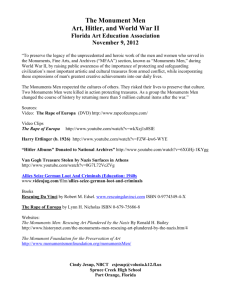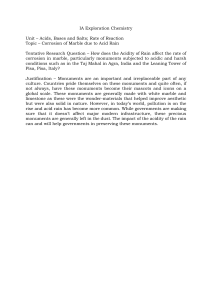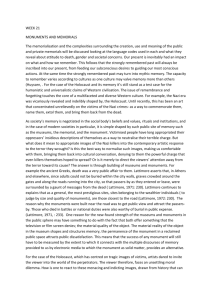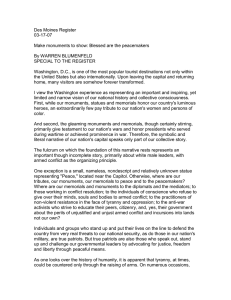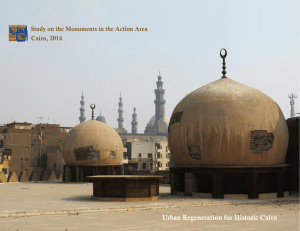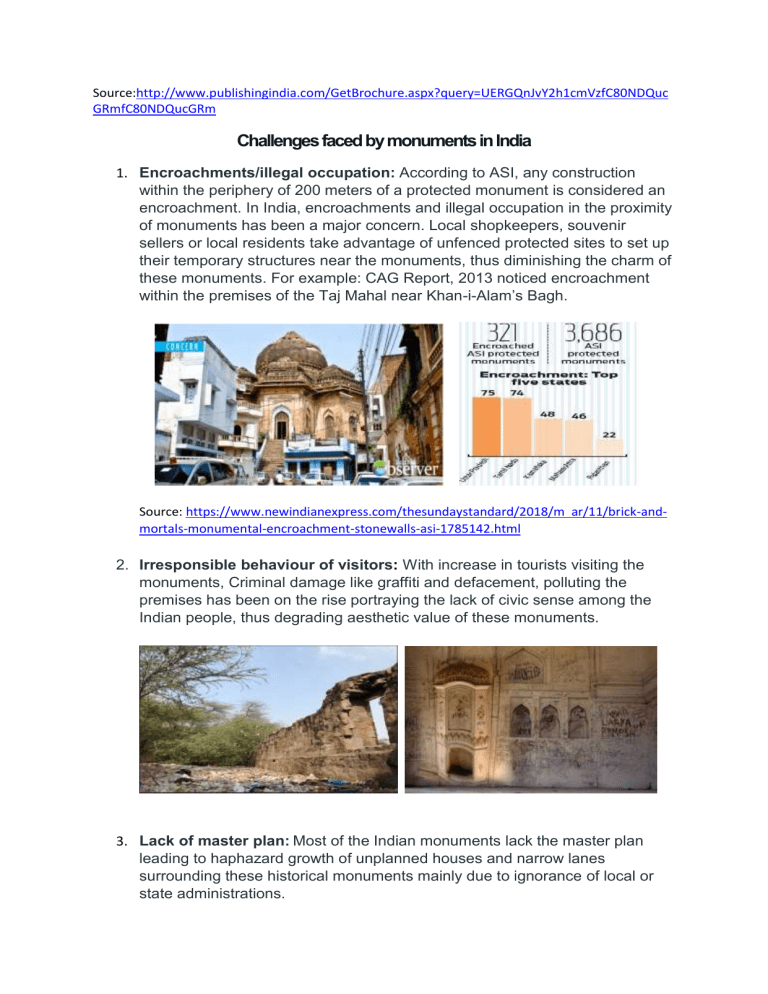
Source:http://www.publishingindia.com/GetBrochure.aspx?query=UERGQnJvY2h1cmVzfC80NDQuc GRmfC80NDQucGRm Challenges faced by monuments in India 1. Encroachments/illegal occupation: According to ASI, any construction within the periphery of 200 meters of a protected monument is considered an encroachment. In India, encroachments and illegal occupation in the proximity of monuments has been a major concern. Local shopkeepers, souvenir sellers or local residents take advantage of unfenced protected sites to set up their temporary structures near the monuments, thus diminishing the charm of these monuments. For example: CAG Report, 2013 noticed encroachment within the premises of the Taj Mahal near Khan-i-Alam’s Bagh. Source: https://www.newindianexpress.com/thesundaystandard/2018/m ar/11/brick-andmortals-monumental-encroachment-stonewalls-asi-1785142.html 2. Irresponsible behaviour of visitors: With increase in tourists visiting the monuments, Criminal damage like graffiti and defacement, polluting the premises has been on the rise portraying the lack of civic sense among the Indian people, thus degrading aesthetic value of these monuments. 3. Lack of master plan: Most of the Indian monuments lack the master plan leading to haphazard growth of unplanned houses and narrow lanes surrounding these historical monuments mainly due to ignorance of local or state administrations. Unplanned city surrounding Fatehpur Sikri Source: ALLCHIN, F. R. "MONUMENT CONSERVATION AND POLICY IN INDIA." Journal of the Royal Society of Arts 126, no. 5268 (1978): 746-65. www.jstor.org/stable/41372851. 4. Degradation and lack of conservation: Lack of preservation, revitalization of heritage buildings is a major challenge in the preservation of the historic monuments. Natural degrading agents such as mosses, fungus, algae, and insects decompose the construction materials like wood, stones etc. Effect of temperature, moisture and pollution further degrade monuments, posing a serious threat to their existence. Monuments other than world heritage sites, have been neglected for so long, due to lack of conservation practices. A monument in Srinagar 5. Lack of basic facilities for tourists: Generally, around the monuments there is unavailability of good accommodation facilities, bars, cafés and transportation facilities. Also, Sluggish security for visitors, especially female visitors is serious concern which is maligning India’s image on the global platform. For example: A lot of Buddhist tourists from Japan, Vietnam, Cambodia, Sri Lanka visit Bodh Gaya temple every year, but deteriorated roads and infrastructure in Bihar has led to decline in the number of tourists. Potholes in the Patna-Gaya road to the Mahabodhi Temple at Bodh Gaya 6. Resentment among foreign tourists due to dual pricing of tickets: Foreign tourists have to pay much higher than Indians about 150% in some places due to Archaeological Survey of India’s (ASI’s) policy of dual pricing for entry tickets to the monuments. For example, to enter the Taj Mahal, foreigners have to pay Rs750 which is only Rs20 for Indians. Similarly, for the Red Fort or the Humayun Tomb in Delhi, Indians pay Rs10 vis-a vis foreigners Rs250. This charging of high fee from foreigners without granting special access rights creates a feeling of hurt and victimisation among them.

